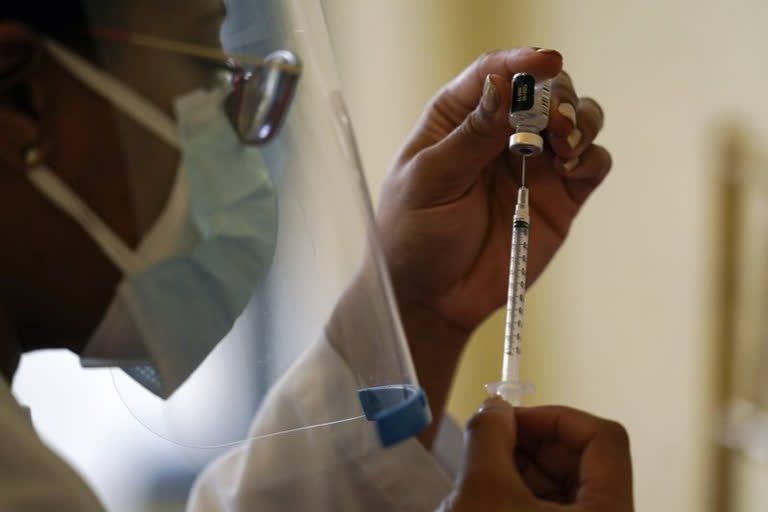Washington:Scientists are reporting troubling signs that some recent mutations of the virus that causes COVID-19 may modestly curb the effectiveness of two current vaccines, although they stress that the shots still protect against the disease.
A different, more limited study out Wednesday gave encouraging news about one vaccine’s protection against some of the mutations.
One way vaccines work is to prompt the immune system to make antibodies that block the virus from infecting cells. The Rockefeller researchers got blood samples from 20 people who had received either the Moderna or Pfizer vaccine and tested their antibodies against various virus mutations in the lab.
With some, the antibodies didn’t work as well against the virus -- activity was one-to-threefold less, depending on the mutation, said the study leader, Rockefeller’s Dr Michel Nussenzweig.
“It’s a small difference but it is a difference,” he said. The antibody response is “not as good” at blocking the virus.
Earlier research established that the two vaccines are about 95% effective in preventing COVID-19 illness.
The latest findings were posted late Tuesday on an online website for researchers and have not yet been published in a journal or reviewed by other scientists. Nussenzweig is paid by the Howard Hughes Medical Institute, which also supports science coverage at The Associated Press. The university has applied for a patent related to his work.
Read:|Bhutan receives first consignment of 150,000 doses of Covishield from India
The coronavirus has been growing more genetically diverse, and scientists say the high rate of new cases is the main reason. Each new infection gives the virus a chance to mutate as it makes copies of itself.
Recent variants or versions of the virus that emerged in the U.K., South Africa and Brazil seem to spread more easily and scientists say that will lead to more cases, deaths and hospitalizations. The new variants do not seem to cause more serious disease but their ability to eventually undercut vaccines is a concern.
E. John Wherry, an immunology expert at the University of Pennsylvania, said the Rockefeller scientists are “among the very best in the world” at this work and their results are concerning.
“We don’t want people thinking that the current vaccine is already outdated. That’s not true,” he said. “There’s still immunity here ... a good level of protection,” but the mutations “do reduce how well our immune response is recognizing the virus.”
The news comes at “a really important time in the pandemic,” said Dr Buddy Creech, a vaccine specialist at Vanderbilt University,
“We’ve got an arms race between the vaccines and the virus. The slower we roll out vaccine around the world, the more opportunities we give this virus to escape” and develop mutations, he said.
